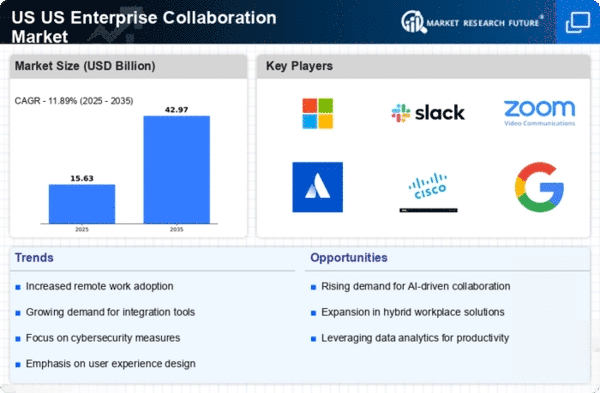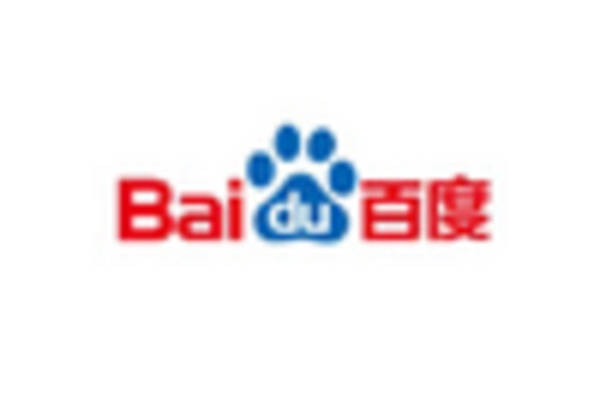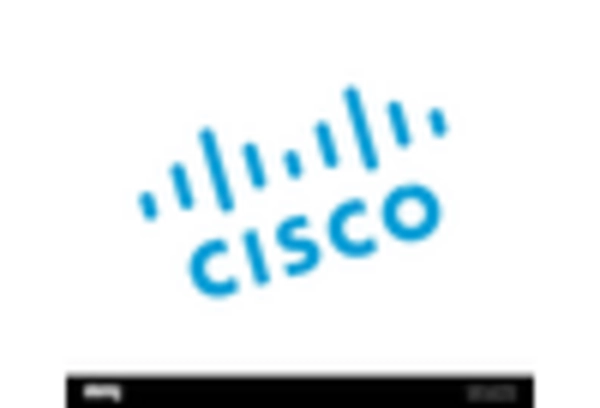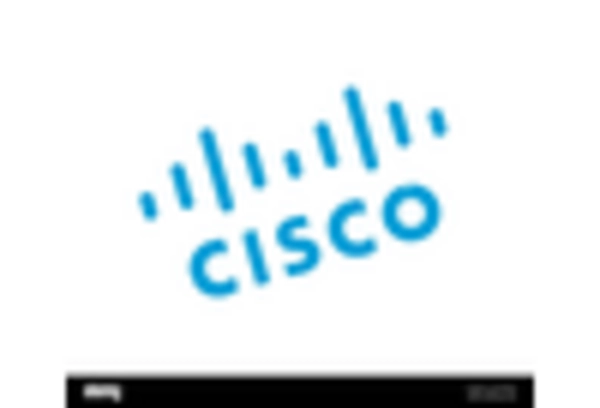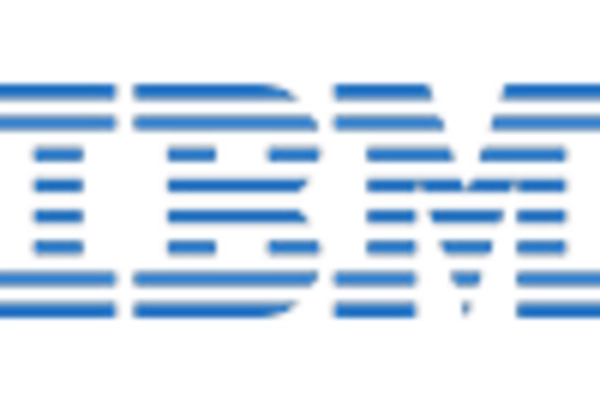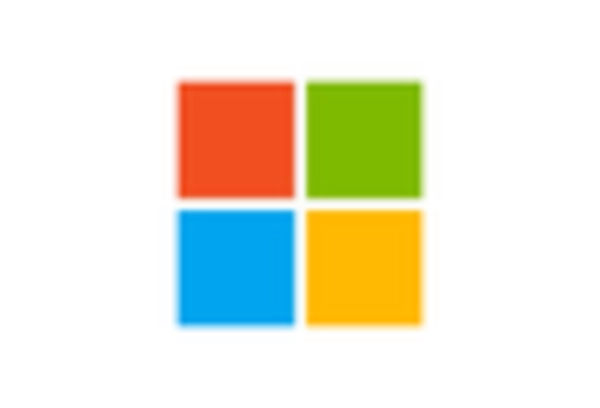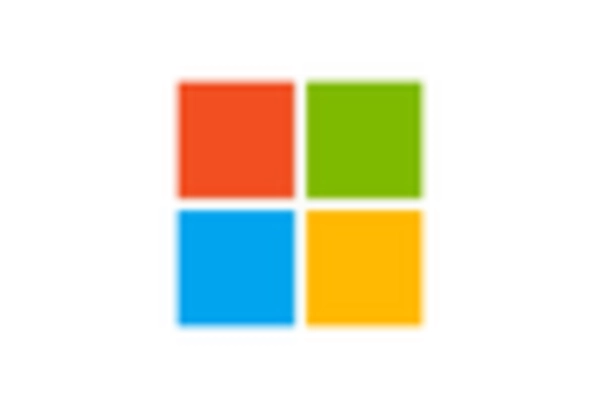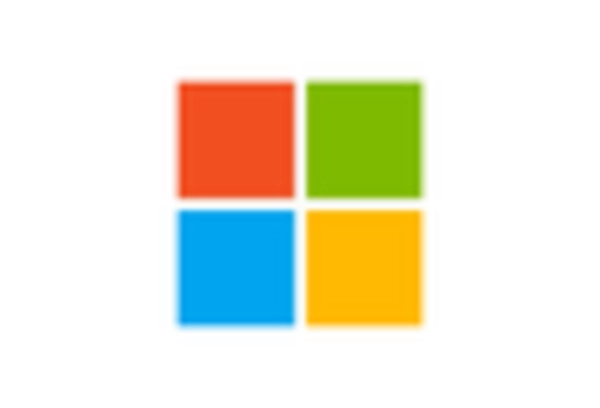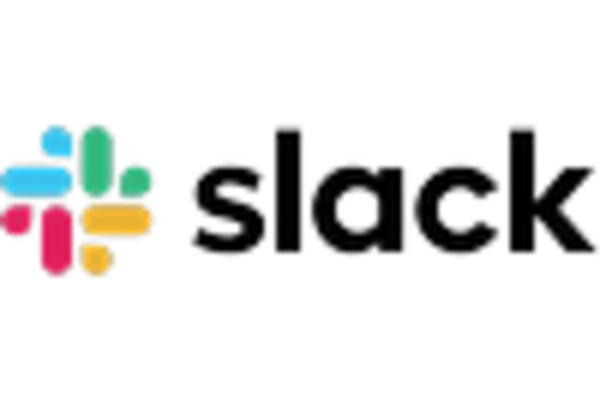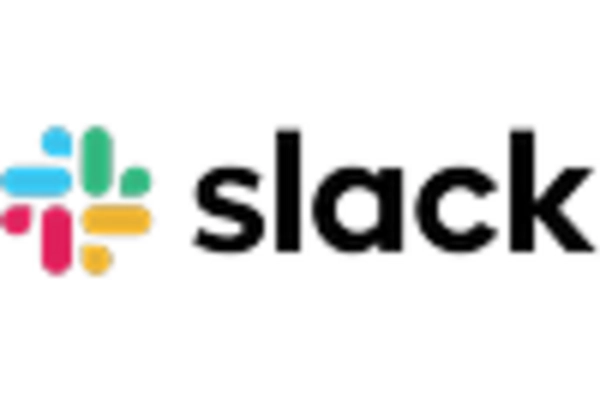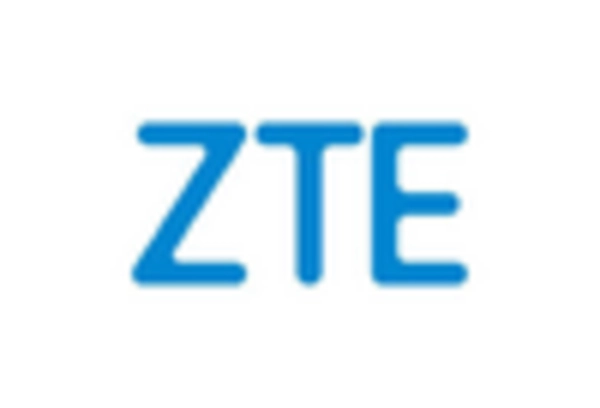Integration of Advanced Analytics
The integration of advanced analytics into collaboration tools is emerging as a pivotal driver in the US Enterprise Collaboration Market. Organizations are increasingly leveraging data analytics to gain insights into team performance and collaboration patterns. This trend is supported by findings that suggest companies utilizing analytics-driven collaboration tools can improve project outcomes by up to 30 percent. By harnessing data, businesses can make informed decisions regarding resource allocation and team dynamics, ultimately enhancing overall productivity. As such, the demand for analytics-enabled collaboration solutions is likely to grow, shaping the future landscape of the US Enterprise Collaboration Market.
Emergence of Cloud-Based Solutions
The emergence of cloud-based solutions is transforming the US Enterprise Collaboration Market. As businesses migrate to cloud environments, the demand for scalable and flexible collaboration tools is on the rise. Recent statistics indicate that over 60 percent of US enterprises are utilizing cloud-based collaboration platforms, driven by the need for accessibility and cost-effectiveness. This trend is prompting vendors to innovate and enhance their cloud offerings, ensuring that they meet the evolving needs of organizations. Consequently, the proliferation of cloud-based collaboration tools is likely to continue, shaping the future dynamics of the US Enterprise Collaboration Market.
Increased Focus on Employee Engagement
In the US Enterprise Collaboration Market, there is a pronounced emphasis on enhancing employee engagement through collaboration tools. Organizations recognize that engaged employees are more productive and contribute positively to company culture. Recent surveys indicate that companies investing in collaboration technologies report a 20 percent increase in employee satisfaction. This trend is prompting businesses to adopt platforms that not only streamline communication but also foster a sense of community among employees. As a result, the market is witnessing a proliferation of tools designed to enhance interaction and collaboration, reflecting a broader commitment to employee well-being within the US Enterprise Collaboration Market.
Regulatory Compliance and Data Privacy
Regulatory compliance and data privacy concerns are significant drivers in the US Enterprise Collaboration Market. With the implementation of stringent data protection regulations, organizations are compelled to adopt collaboration tools that ensure compliance with laws such as the California Consumer Privacy Act (CCPA). This regulatory landscape is influencing purchasing decisions, as companies seek solutions that not only facilitate collaboration but also safeguard sensitive information. As a result, vendors are prioritizing security features in their offerings, thereby enhancing their appeal in a market increasingly focused on compliance and data integrity within the US Enterprise Collaboration Market.
Growing Demand for Remote Work Solutions
The US Enterprise Collaboration Market is experiencing a notable surge in demand for remote work solutions. As organizations increasingly adopt flexible work arrangements, the need for effective collaboration tools has intensified. According to recent data, approximately 70 percent of US companies have implemented remote work policies, driving the market for collaboration software. This shift necessitates platforms that facilitate seamless communication and project management among distributed teams. Consequently, vendors are innovating to provide solutions that enhance productivity and engagement, thereby positioning themselves favorably within the competitive landscape of the US Enterprise Collaboration Market.


